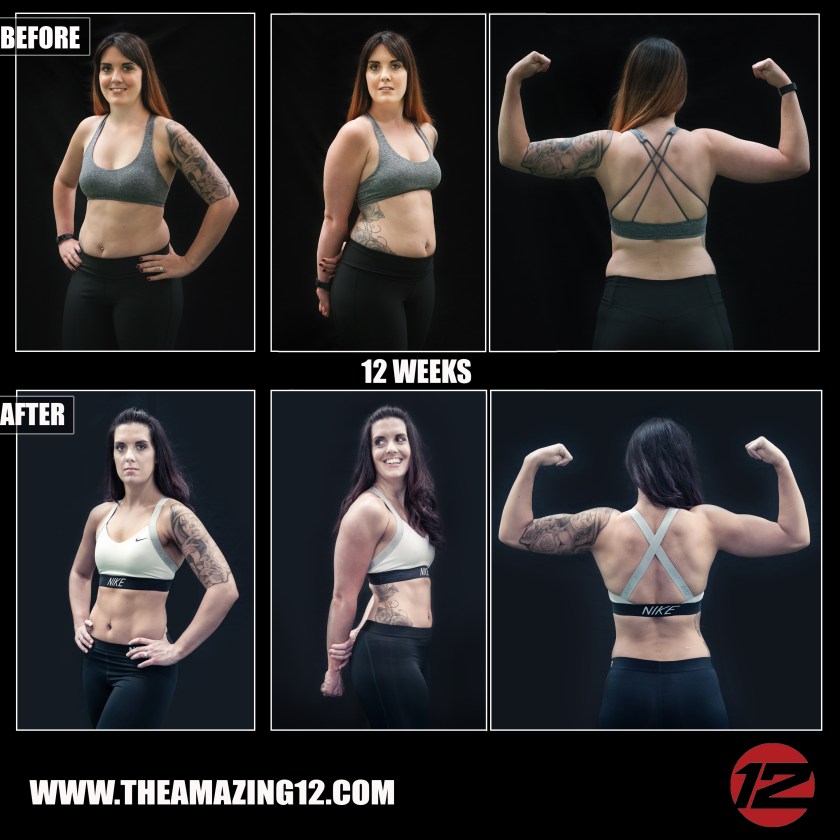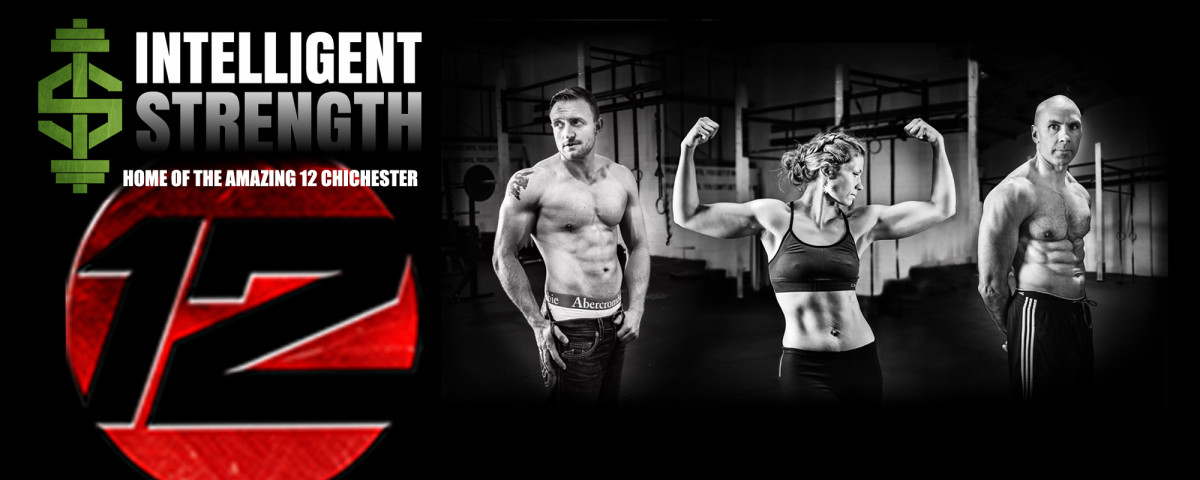
EVERYONE has a story – a past, a life of experiences. Some are worth telling and some not.
What you may not know about Jemma – and would not from simply looking at her photos – is that as a teenager, she was, quite literally, all skin and bones, down to 5 1/2st (77lbs) and losing a battle with anorexia.
If you had suggested back then that at close to 30 she’d complete a three-month program that included lifting weights five days a week, eating healthily and dramatically ramping up her fitness levels, it would have seemed unfathomable.
What it shows, though, is that no matter how grim things are, there’s usually a way out and a way to move forwards.
Jemma admits that anorexia nearly took her life. She was hospitalised. It caused a lot of misery and suffering. But she survived.
However, Jemma’s relationship with her bodyweight has been a rollercoaster ride. When she was anorexic (for five years between the ages of 12 and 17), she said her skin was grey and her hair falling out. She doesn’t know how she didn’t die.
When you take that as the starting point, she’s done incredibly well to get to where she is now.
Overcoming anorexia didn’t mean the fight with body image had ended. Before starting the Amazing 12, Jemma was still unhappy with her appearance. She’d gained weight. None of her dresses fitted. Looking at her reflection, she was frequently reduced to tears. It’s a scenario that, sadly, many people can identify with.
This time when she saw herself as too heavy, she was closer to 13st (182lbs) than 5st. Jemma admitted it was down to poor lifestyle choices. She held herself accountable.
“I was lazy,” she said of her mindset before the program. “I used to cry every night looking at myself. I wasn’t happy with how I’d become. But I just didn’t do anything about it. I was drinking a lot, eating take-aways, not doing much exercise.
“Now [after completing the Amazing 12] I know what it takes. I feel so much better. I don’t miss drinking [alcohol]. Whenever I eat bad food, I feel terrible.”

Jemma had reached the point where her desire to change was greater than her desire to stay the same. She chose to take action. She made changes. She signed up for the Amazing 12 Chichester almost without hesitation.
Often it takes a lot of bravery to embrace change. There’s a lot of fear involved.
In many cases we, as humans, would prefer to remain unhappy rather than face uncertainty.
Jemma didn’t know the intricate details of what she was signing up for, but she’d seen the results, had read on this website about what the program could do and how previous graduates had coped. Then she decided to take that leap.
If fact, I can’t recall anyone I’ve guided and coached through the program who has been more enthusiastic from beginning to end. She simply didn’t want it to finish.
That’s not to say it was smooth sailing by any means. It was tough for Jemma. She complained – a lot!
But, as I have written in previous blogs, the limiting factor for Jemma was her thinking and not her strength or technique or fitness levels. I could always see her potential and knew, with her level of willingness, anything was possible.
We worked on it during every session. It’s a process. I tried to remind her that EVERY training session and EVERY day presented an opportunity for change and improvement. That’s the reality for us all.
In 12 weeks I got the best out of her that I could. Through consistency and commitment and application, she lost 32lbs in weight! But the transformation was even greater than that number might suggest, as she clearly developed muscle while also shedding fat.

She can undoubtedly go on from here to becoming stronger and fitter. Jemma’s already said she wants to do the program again next year, before she gets married.
Her transformation is not just about how her body looks. It is also about what her body can now do, how she feels in herself, her approach to nutrition and the increased self-belief she has cultivated.
“I feel so much happier,” she said. “Even people at work have commented how I’m back to my old self. There’s no way I’m going back [to being overweight].

“I did the Amazing 12 to lose weight, tone up and change my lifestyle. I wanted to better my knowledge and learn how to lift weights correctly.
“It’s made me much more confident about my body. I’ve even had my legs out without tights on! This was a no-no before. And it’s given me the confidence to know what I’m doing in the gym is correct.”
Jemma is so much more empowered. I’ve seen her blossom in the past 12 weeks, not just in physique and fitness, but also in stature and confidence.
This girl showed tremendous discipline. She missed only one of the 60 training sessions and still hasn’t completely forgiven herself even though she couldn’t do much about it.
“I was very dedicated and had great support in my home life which made it easier for me,” said Jemma. “I was worried having a full-time job and the travel and also getting another puppy would get to me. But it was doable and the time has flown by. It was well worth the hard work.
“I was so down and depressed before. But this [the Amazing 12] turned me around. I’ve learned so much. Claude has been the best coach and so supportive.”
There were times I had Jemma do some training by herself in addition to the gym sessions with me – which is all part of the program – and I don’t suspect that she skipped any of it.

Sometimes she was tired and aching, but she still got it done. Often I’d get a text message in the morning telling me how great she felt for doing so.
There were numerous occasions, too, when Jemma came to the gym feeling stressed or worn out or sore or not on her game and practically every time, though, she’d leave feeling much more upbeat and revitalised.
“It’s amazing how that happens,” she’d say repeatedly.
In terms of following and sticking to the eating plan, Jemma found it tricky in the beginning, but had it figured out most of the time.
“It did seem a bit daunting at first,” she admitted. “But once I got into it I wasn’t having to prep hardly as much and it was simple. I mostly enjoyed it. I didn’t feel hungry at all and having a cheat day made it even easier. I’ll be sticking to a similar way of eating going forwards.”
Jemma’s mindset throughout was ‘I have invested too much into this to let myself down’.
Because she applied herself completely and had total trust in me and the program, the Amazing 12 really worked well for her. The weight kept dropping off and her strength and fitness increased.
Especially during the last few weeks, I could see her shape changing. By the end, she not only looked like an athlete, she was stronger – physically and mentally – as well.

“No-one is going to accuse me of being Photoshopped,” she said. “I’ve worked bloody hard.”
Week after week and session after session, almost without fail, Jemma would repeat, “I just can’t believe…” and would follow those words with “how much stronger I am” or “how much fitter I’ve become” or “how much weight I have lost”.
To say she felt proud and those around her were proud of her also, is a massive understatement. And she deserves every morsel of praise for her efforts.
It’s not as if she lives around the corner from the Core Results gym either. Jemma travelled each day from Waterlooville, near Portsmouth. Most days we’d finish training around 9pm.

Jemma may have been impatient at times – actually, most of the time – but she embodied the other factors I consider crucial for progress with any training program: commitment and consistency.
At first she was desperately self-conscious of her movement and worried about how she was doing. After all, she was fairly new to the type of training on the Amazing 12. She’d compare herself to others and be concerned that she was slowing everyone down. She’d fret over never being good enough or that 12 weeks wouldn’t be long enough for her to make the necessary changes to her technique.
Gradually, as she changed and learned and improved, those worries began to disintegrate as easily as some of the excess weight she was carrying in the beginning.

Her fitness levels altered quite dramatically. Where she struggled during short workouts at the beginning of the program, by week 12 she was going for much longer and with heavier weights and at a higher intensity without compromising her form.
“I feel ABSOLUTELY AMAZING,” she said after she’d finished. “I can’t describe my happiness in how I look and feel.
“Even my fitness has literally rocketed and I can run without stopping and aching. I feel so much stronger and energetic.
“Confidence-wise, I’m even pushing through reps when it gets tougher instead of thinking I can’t do it.”
I recall how, when she started with me and we had a training session before the program to assess her strength levels and how she moved, Jemma told me how she felt she had no upper body strength.

Here are some examples of how much progress she made. I started her with 7.5k for the Military/overhead Press and she finished with 26k for reps. For the bench press, she began with 15k and wound up lifting, for reps, 40k. Her back squat needed so much work that I had her begin with a 20k bar with the aim of getting her to squat more deeply and she ended up doing 77.5k quite comfortably (meaning she could do more) for two reps and impressive technique. Her deadlift, for multiple reps, went from 30k to 75k. There are many more examples I could give. On all of those lifts, she has the capacity to continue improving.
Jemma’s determined to keep going. She knows she has to stay on top of the way she eats. She knows how easy it is to start consuming take-aways regularly again and see all the hard work disappear.
There has to be a balance. There is no escaping the fact that to stay in shape and healthy requires paying greater attention to what you eat and how much of it your consume. Like it or hate it, that’s just the way it is.

Jemma’s come to recognise through this experience how much cleaner food, a dedication to training, following a progressive program and keeping a more positive mindset can be transformative.
“There’s nothing I’d change about the Amazing 12,” she told me. “Everything was spot-on and I felt really looked after and well informed throughout.”
To those contemplating doing the program, she said this: “Do it. You won’t regret it. It was the best experience ever. Loved it. I was so chuffed with my transformation.
“If you want to be physically and mentally stronger as well as improve your lifestyle and fitness, this will help you. But you have to be fully committed and willing to learn.”
*If you’re in need of or desire a transformation, want to learn how to train smartly and effectively, would like to challenge yourself to get stronger and fitter, require guidance with food and nutrition and are inspired by Jemma’s results, get in touch at Claude@intelligentstrength.co.uk. The next Amazing 12 Chichester begins on September 18. Don’t delay. Places are limited and results are achieved only by taking action.













































































